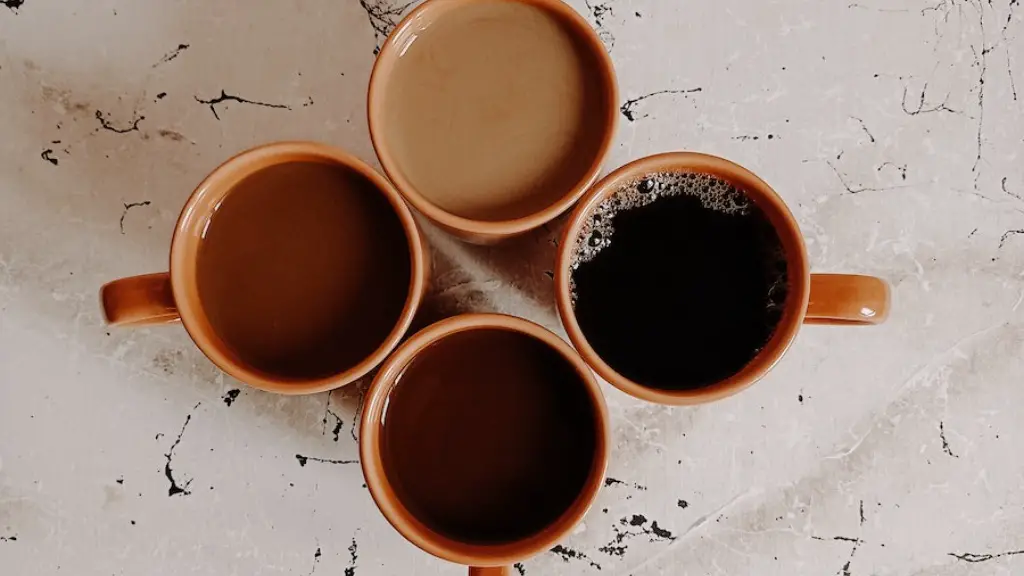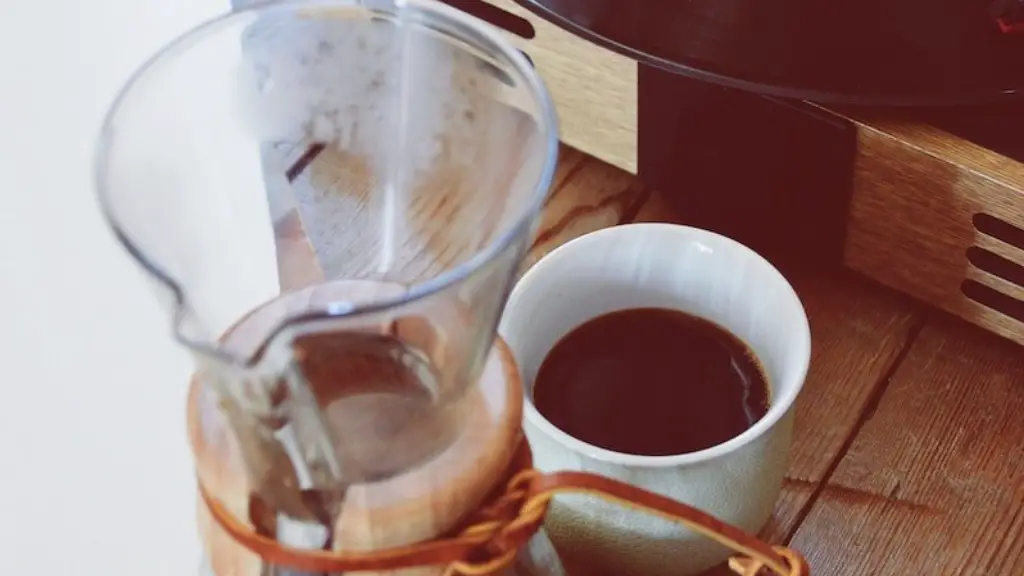Biological Causes
There are several biological causes of nausea after drinking coffee. The most common of these is caffeine sensitivity. Caffeine sensitivity simply means that an individual is more likely to experience feeling sick after consuming a large amount of caffeine. This is because caffeine is a stimulant and overloads the body with energy, speeding up the heart rate and blood pressure, which can lead to nausea and an upset stomach.
The caffeine in coffee can also lead to an adrenaline rush, which causes the body to release certain hormones that can lead to feelings of anxiety, which can trigger feelings of nausea. Additionally, people may be sensitive to the acidity in coffee, which can also lead to nausea, as well as stomach pains.
Overconsumption of caffeine can also cause dehydration, which can lead to feelings of nausea and an upset stomach. This is because dehydration can lead to electrolyte imbalances, which can interfere with muscle contraction, making it difficult to digest food properly.
Psychological Causes
Although nausea after drinking coffee may have biological causes, it can also be caused by psychological factors. People who are feeling anxious, depressed, or overwhelmed may be more likely to experience nausea after drinking coffee. This is because the stimulant effects of caffeine can exacerbate existing feelings of anxiety, leading to nausea and an upset stomach. Additionally, people who are dealing with stress and anxiety might be more sensitive to caffeine than others, making them more likely to experience nausea.
It is also possible for coffee to trigger psychological associations with feeling sick. For example, if a person sees coffee as a source of stress or anxiety, they may be more likely to experience nausea after coffee. Additionally, people who have previously experienced physical discomfort after drinking coffee might associate coffee with nausea and be more likely to experience it in the future.
Lifestyle Causes
Lifestyle factors can also contribute to feelings of nausea after drinking coffee. People who smoke, drink alcohol, or consume sugary beverages on a regular basis are more likely to experience nausea after drinking coffee. This is because these activities can disrupt the body’s natural metabolism and lead to an energy imbalance, which can cause nausea and an upset stomach. Additionally, people who consume large amounts of processed foods, such as refined sugars, carbohydrates, and artificial flavors, are more likely to experience nausea after drinking coffee.
Additionally, certain medications can also interfere with the way coffee is metabolized, leading to an upset stomach. For example, people who take a diuretic medication, such as furosemide, may be more likely to experience nausea after drinking coffee. This is because diuretics can interfere with the body’s ability to absorb and process caffeine properly.
Dietary Causes
Nausea after drinking coffee can also be caused by dietary factors. People who consume too much caffeine, sugary foods, and fried foods may be more likely to experience nausea after drinking coffee. This is because these types of foods can lead to an energy imbalance, which can disrupt the body’s natural metabolism and lead to nausea. Additionally, people who consume large amounts of processed foods, such as refined sugars and carbohydrates, may be more likely to experience nausea after drinking coffee.
It is also important to note that some people may be more sensitive to certain types of food than others. For example, people who are gluten intolerant may be more likely to experience nausea after drinking coffee because they may not be able to properly digest it. Additionally, people with other food sensitivities or allergies, such as dairy and nuts, may be more likely to experience nausea after drinking coffee. It is also possible that certain additives, such as artificial sweeteners and preservatives, may lead to nausea after coffee consumption in people who are sensitive to them.
Other Causes
Other causes of nausea after drinking coffee may include physical exertion, certain medications, and aging. People who do intense exercise may be more likely to experience nausea after drinking coffee because the stimulant effects of the caffeine can interfere with their body’s natural recovery process. Additionally, people taking certain medications, such as anti-depressants and anti-anxiety medications, may be more likely to experience nausea after drinking coffee. In addition, people who are older may be more likely to experience nausea after drinking coffee because their bodies may not be able to metabolize the caffeine as effectively as younger people.
Prevention
The best way to prevent nausea after drinking coffee is to limit coffee consumption and drink it in moderation. People should also be aware of their individual caffeine sensitivity and adjust their coffee consumption accordingly. Additionally, people should try to eat foods that are high in protein and fiber, such as lean meats, fruits and vegetables, to help reduce feelings of nausea after coffee consumption. It is also important to drink plenty of fluids throughout the day to prevent dehydration and electrolyte imbalances.
In addition, people should try to limit their exposure to stress and anxiety, as these can trigger feelings of nausea after coffee consumption. People should also be mindful of their dietary habits, as certain types of processed foods, sugary foods, and fried foods can contribute to feelings of nausea after coffee consumption. Additionally, people should also be mindful of their medications and supplement regimens to ensure that they are not interfering with caffeine metabolism.
Dealing with Nausea from Coffee
If an individual is experiencing nausea after drinking coffee, it is important to take preventative steps to limit its effects. This may include stepping away from the source of anxiety or stress, drinking plenty of fluids, and avoiding processed and sugary foods. Additionally, people may try taking a hot bath, drinking soothing herbal tea, or engaging in deep breathing exercises to reduce feelings of nausea. If the nausea persists, it is important to consult a doctor to rule out any underlying medical condition.
Expert Advice
Dr. Emma LeBlanc, a registered dietitian and nutritionist, notes that while caffeine can be a beneficial part of a healthy diet, it is important to be aware of individual caffeine sensitivity and to drink coffee in moderation. “Caffeine can be a beneficial part of a healthy diet, but it’s important to be aware of individual caffeine sensitivity,” she says. “Drinking coffee in moderation and making sure to eat balanced meals accompanied with plenty of fluids is key to avoiding nausea after drinking coffee.”
Dr. LeBlanc also suggests engaging in relaxation activities, such as deep breathing and meditation, as well as avoiding alcohol, sugary and processed foods, and cigarettes. “If nausea persists, it’s important to talk to your doctor to rule out any potential underlying medical conditions,” she adds.
Conclusion
Nausea after drinking coffee can be caused by several different factors, including caffeine sensitivity, medications, dietary factors, and lifestyle habits. Taking preventative steps, such as reducing caffeine consumption and eating balanced meals, is key to avoiding nausea after drinking coffee. It is also important to engage in relaxation activities, such as deep breathing and meditation, and to limit alcohol, sugary and processed foods, and cigarettes. It is also essential to consult a doctor if nausea persists, in order to rule out any potential underlying medical conditions.




